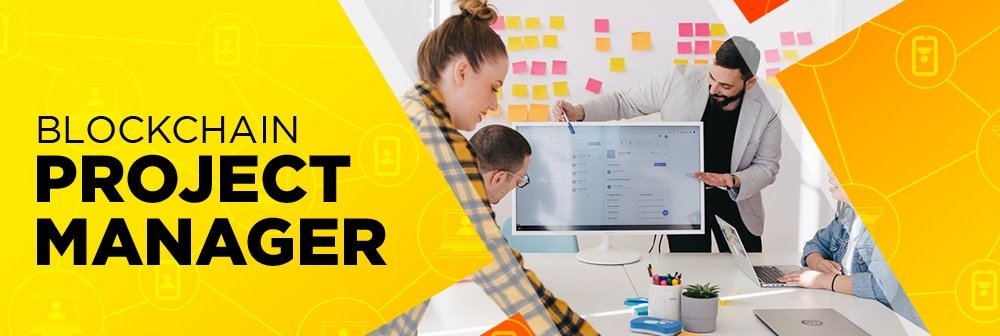
Back in 2009, Satoshi Nakamoto introduced Bitcoin, and this made Blockchain technology attract a lot of attention. As a revolutionary technology, blockchain has seen a steady rise. This is despite the distrust that people had regarding it in recent years and thus did not want to identify with it. As things are at the moment, the digital space has given rise to immense job opportunities, which is making blockchain jobs more popular. There is a rise in demand in the job market, but still there exists a shortage of crucial skills. As a result, compensation for those who have the skills is currently higher compared to other fields.
Why Are Blockchain Technology Skills Popular?
Blockchain technology has rapidly transformed from being a niche concept to a critical tool for industries worldwide. The skills associated with blockchain jobs are now some of the most sought-after in the job market, and this trend is only growing stronger. But what makes these skills so popular? Let’s break it down.
1. High Demand Across Industries
Blockchain technology is no longer limited to cryptocurrency. While Bitcoin introduced blockchain to the world, its applications now extend far beyond digital currencies. Industries such as finance, healthcare, supply chain, real estate, and even entertainment are adopting blockchain to improve security, transparency, and efficiency. This widespread adoption means companies are scrambling to hire skilled blockchain professionals to implement and maintain these systems.
No organization wants to lag in a world where blockchain is reshaping how data is shared, and transactions are secured. This is why professionals with expertise in blockchain technology are in high demand across virtually every sector.
2. Emerging as a Critical Skill
As an emerging field, blockchain skills are still relatively rare. Not many professionals possess the combination of technical expertise and real-world experience needed to excel in this domain. This skill gap makes blockchain professionals highly valuable. Employers are willing to offer attractive compensation packages to candidates with the right expertise, knowing their work can significantly impact business growth and innovation.
3. Diverse Employer Landscape
If you’re exploring a career in blockchain, it’s essential to understand who the employers are. They typically fall into four broad categories:
- Start-ups: Small, innovative companies are leveraging blockchain to develop groundbreaking products and services. These companies often offer opportunities to work on cutting-edge projects and disrupt traditional industries.
- Large Corporations: Established companies are incorporating blockchain to streamline operations and enhance security. Examples include multinational banks, healthcare providers, and supply chain giants.
- Government Entities: Governments worldwide are exploring blockchain to enhance transparency, secure voting systems, and improve public services like land registries.
- Tech Firms: Leading technology companies like IBM, Microsoft, and Amazon are deeply involved in blockchain development. They are constantly hiring professionals to create blockchain-based solutions and platforms for global use.
4. Massive Investment in Blockchain Development
Organizations of all types are pouring significant resources into the blockchain. They understand that integrating this technology can save costs, enhance security, and provide a competitive edge. For example, in the financial sector, blockchain is being used to process international payments faster and more affordably. In healthcare, blockchain ensures the secure sharing of patient data across institutions. These advancements drive demand for skilled individuals who can implement blockchain solutions effectively.
5. A Global Shift Toward Decentralization
Blockchain represents a shift from centralized systems to decentralized ones, where power and control are distributed. This shift aligns with the growing demand for transparency and autonomy in systems ranging from finance to social media. Businesses and governments are keen to adapt to this shift, making blockchain expertise critical for future-proofing their operations.
What Does This Mean for Job Seekers?
For professionals looking to enter the blockchain space, this demand presents a golden opportunity. However, it also highlights the importance of understanding industry needs. Blockchain professionals must stay updated on the latest advancements in the field and develop a solid foundation in skills like cryptography, smart contracts, and blockchain architecture.
Whether you’re aiming to work with innovative start-ups or established giants, the possibilities are vast. Blockchain jobs are here to stay, and as their applications continue to grow, so will the demand for skilled professionals. It’s an exciting time to step into this field and carve out a rewarding career.
What Blockchain Jobs Are the Most Popular?
If you’re intrigued by the idea of building a career in blockchain, you’re not alone. This revolutionary technology has transformed how industries operate, creating a wealth of job opportunities for skilled professionals. Whether you’re a tech enthusiast, a problem-solver, or someone looking to future-proof your career, blockchain jobs offer exciting paths worth exploring.
Why Blockchain Jobs Are in High Demand
Blockchain technology is reshaping industries like finance, healthcare, supply chain management, and even government operations. It’s no longer limited to powering cryptocurrencies like Bitcoin—it has become a versatile tool for solving complex problems. As more organizations adopt blockchain to improve security, transparency, and efficiency, the demand for experts in the field has skyrocketed. However, the talent pool remains small, which means those with the right skills can command competitive salaries.
A Wide Range of Opportunities
Blockchain jobs are diverse and go beyond just coding. Whether you’re interested in development, management, design, or even legal consultancy, there’s likely a role that matches your skillset. Let’s break it down:
- Technical Roles
These roles, such as developers and architects, focus on building and maintaining blockchain systems. If you love coding, solving technical challenges, or designing systems, these jobs could be for you. - Creative Roles
Designers and UX experts play a crucial role in making blockchain applications user-friendly. If you’re creative and enjoy crafting seamless experiences, this is an area to explore. - Management and Strategy Roles
Project managers and consultants work to bridge the gap between technical teams and stakeholders, ensuring that blockchain solutions align with business goals. These roles are perfect for those with strong communication and leadership skills. - Analytical and Legal Roles
Analysts assess risks and strategize for blockchain projects, while legal consultants ensure compliance with regulations. If you enjoy solving problems and thinking critically, these roles offer rewarding challenges.
Why Now Is the Time to Explore Blockchain Careers
Blockchain jobs aren’t a passing trend—it’s a foundational technology that’s here to stay. With industries increasingly integrating blockchain into their operations, the job market is ripe with opportunities. Whether you’re starting from scratch or looking to pivot your career, there’s never been a better time to jump in.
This article will guide you through some of the highest-paying blockchain jobs available today, giving you a clearer idea of what’s possible and what it takes to succeed in this rapidly growing field. Whether you’re just curious or ready to dive in, you’ll find plenty of inspiration and practical advice ahead.
1. Blockchain Developer: Crafting the Future of Digital Innovation
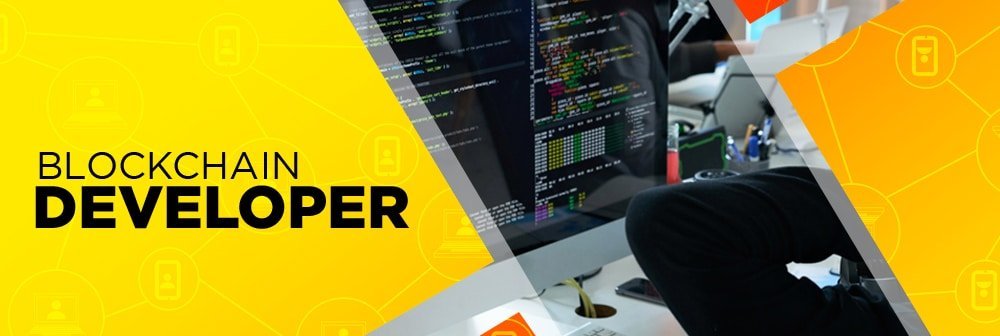
Blockchain developers are at the heart of the blockchain revolution. These professionals design and implement solutions that harness the power of decentralized technology, making their role one of the most sought-after in today’s job market. As the demand for blockchain technology continues to soar, companies are constantly on the lookout for skilled developers who can deliver innovative, reliable, and scalable solutions.
What Does a Blockchain Developer Do?
At its core, a blockchain developer’s job involves creating applications and systems that run on blockchain platforms. These include smart contracts, decentralized applications (dApps), and entire blockchain ecosystems. Their work often requires problem-solving skills and deep technical knowledge to craft efficient, secure, and user-friendly solutions.
There are two primary types of blockchain developers:
- Core Blockchain Developers
These developers focus on the foundation of blockchain systems. They design and maintain the architecture of blockchain networks, ensuring the integrity and functionality of the underlying infrastructure. Their work involves creating consensus protocols, managing the network, and implementing security measures to protect the blockchain. - Blockchain Software Developers
These developers build on top of the blockchain infrastructure. They design and develop applications, such as smart contracts and dApps, that interact with the blockchain. Their goal is to make the technology accessible and functional for end-users.
Industries Hiring Blockchain Developers
Blockchain developers are in demand across a wide range of industries, including:
- Technology Firms: Innovating tools for blockchain platforms.
- Finance and Banking: Developing secure systems for transactions, cryptocurrencies, and digital wallets.
- Government Agencies: Building secure, tamper-proof systems for voting, identity verification, and record-keeping.
- Healthcare: Creating solutions for managing patient records securely.
- Supply Chain Management: Enhancing transparency and efficiency.
Essential Skills for a Blockchain Developer
To thrive in this role, a blockchain developer must have a combination of technical expertise and analytical thinking. Key skills include:
- Blockchain Fundamentals: An in-depth understanding of blockchain architecture, distributed ledgers, and how consensus mechanisms work.
- Programming Languages: Proficiency in languages such as C++, Python, Java, Solidity, and .NET.
- Cryptography: Knowledge of encryption techniques to secure data on the blockchain.
- Data Structures: Expertise in linked lists, hash maps, and other structures that are foundational to blockchain systems.
- Web Development: Familiarity with front-end and back-end development to create seamless interfaces for blockchain applications.
- Smart Contract Development: Experience with platforms like Ethereum to write and deploy self-executing contracts.
Why Blockchain Developers Are Highly Valued
The complexity of blockchain systems and the shortage of skilled professionals make blockchain developers one of the highest-paid roles in the tech industry. Their ability to bridge the gap between theoretical blockchain principles and practical applications directly impacts an organization’s success in this emerging field.
Salary Expectations
The average salary for a blockchain developer is $92,863 per year, according to Indeed.com. However, experienced professionals and those working for top-tier companies can earn significantly higher, especially in regions with a strong tech ecosystem.
How to Become a Blockchain Developer
If you’re interested in this career, start by:
- Learning the Basics: Understand blockchain technology, its components, and how it works.
- Mastering Programming Languages: Focus on languages commonly used in blockchain development.
- Gaining Practical Experience: Build projects, contribute to open-source blockchain platforms, and experiment with creating smart contracts.
- Earning Certifications: Enroll in blockchain certification courses to validate your skills and make your resume stand out.
Becoming a blockchain developer is not just about securing a high-paying job—it’s about being part of a technological revolution that is reshaping industries worldwide. With dedication and the right skills, you can play a pivotal role in this exciting field.
2. Blockchain Architect: Building the Framework for Blockchain Success
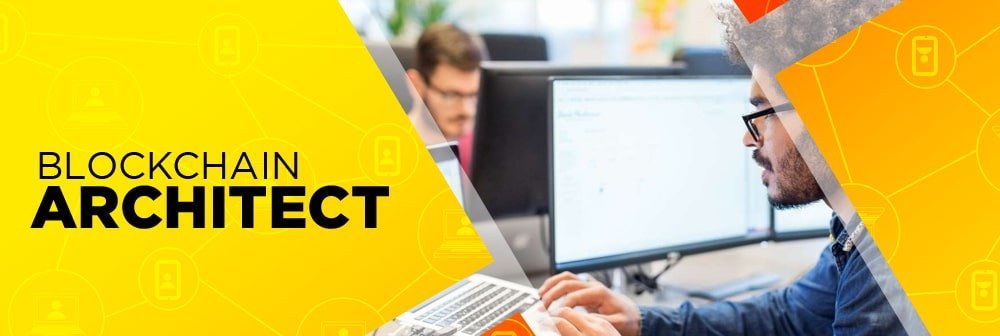
Blockchain architects are the strategic visionaries behind blockchain-based systems. They are responsible for designing, assigning, and connecting the different components of a blockchain solution, ensuring the system is both functional and efficient. This role requires a balance of technical expertise, creativity, and leadership, making it one of the most critical positions in the blockchain ecosystem.
What Does a Blockchain Architect Do?
A blockchain architect oversees the overall design of blockchain systems. They conceptualize the architecture, set up protocols, and ensure seamless integration with existing systems. Their responsibilities often involve:
- Designing System Architecture: Mapping out the framework for how different parts of the blockchain solution will work together.
- Collaborating with Teams: Working closely with IT operations, developers, network administrators, UX designers, and other specialists to implement the system.
- Ensuring Security and Scalability: Building robust systems capable of handling large volumes of data while maintaining high levels of security.
Industries Hiring Blockchain Architects
Blockchain architects are in demand across industries where blockchain adoption is growing rapidly. These include:
- Financial Services: Developing blockchain systems for secure transactions and decentralized finance (DeFi).
- Healthcare: Designing architectures for secure patient data storage and sharing.
- Supply Chain Management: Creating blockchain frameworks to improve transparency and traceability.
- Government Organizations: Implementing secure systems for voting and identity verification.
- Technology Firms: Innovating cutting-edge blockchain platforms and tools.
Essential Skills for a Blockchain Architect
Becoming a successful blockchain architect requires a wide range of skills that blend technical knowledge with strategic thinking. These include:
- Programming Languages: Proficiency in languages like Python, Node.js, and React for backend and frontend development.
- Web Technologies: Knowledge of HTML and CSS to work with user interfaces.
- Database Management: Expertise in Generic SQL for managing and organizing blockchain data.
- Cryptography: Understanding encryption and security protocols to protect blockchain systems.
- Data Science: Analytical skills to manage and interpret large datasets within the blockchain.
- DevOps: Experience in DevOps methodologies to streamline the development and deployment process.
Why Blockchain Architects Are In Demand
Blockchain architects play a pivotal role in bridging the gap between business goals and technical solutions. Their ability to create scalable, secure, and efficient systems makes them indispensable for organizations seeking to leverage blockchain technology.
Salary Expectations
Blockchain architects are among the highest earners in the blockchain field, with an average salary of $114,803 per year, according to Indeed.com. This figure can vary based on factors such as experience, location, and the complexity of the projects undertaken.
How to Become a Blockchain Architect
If you’re aspiring to become a blockchain architect, here’s how you can get started:
- Learn the Fundamentals: Understand blockchain technology and its key components, including consensus mechanisms, smart contracts, and distributed ledgers.
- Master Programming: Develop skills in programming languages like Python, Node.js, and React, along with web technologies such as HTML and CSS.
- Gain Hands-On Experience: Work on blockchain projects, from designing simple frameworks to contributing to complex systems.
- Stay Updated: Keep up with the latest advancements in blockchain to ensure your designs remain relevant and innovative.
- Get Certified: Pursue blockchain architecture certification programs to validate your expertise and stand out in the job market.
Certification Opportunities
Interested in getting certified? Certification programs are a great way to enhance your skills and prove your competence in blockchain architecture. Popular programs include those offered by platforms like Coursera, edX, and the Blockchain Training Alliance. These courses often include practical projects, helping you build a portfolio that showcases your capabilities.
Blockchain architecture is a high-paying, impactful career path that combines technical skills with strategic vision. With the right expertise, you can become a key player in shaping the future of blockchain technology.
3. Blockchain Administrator: Ensuring Smooth Operations in Blockchain Systems
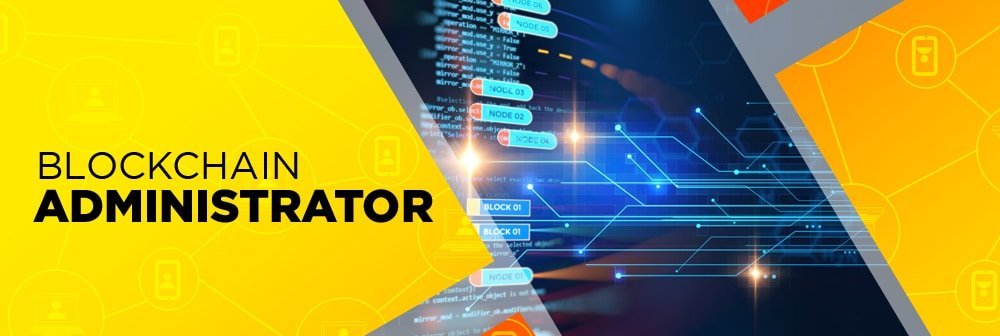
Blockchain administrators play a vital role in the seamless operation of blockchain networks. These professionals are responsible for overseeing and managing the infrastructure that supports blockchain technology. They ensure that everything is running efficiently, from the various components of the blockchain system to the tools and services required to maintain optimal performance.
What Does a Blockchain Administrator Do?
The primary responsibility of a blockchain administrator is to manage and maintain the blockchain infrastructure. This includes setting up blockchain systems, monitoring their performance, and troubleshooting any issues that arise. Administrators work closely with developers, engineers, and other IT professionals to ensure that blockchain platforms are up and running without disruption.
Key tasks include:
- Managing Blockchain Infrastructure: Setting up, configuring, and maintaining the infrastructure that powers blockchain networks.
- Monitoring Performance: Continuously checking the performance of blockchain services and tools to ensure efficiency.
- Optimizing Operations: Identifying areas for improvement and implementing solutions to optimize blockchain systems.
- Ensuring Security: Overseeing the security of blockchain networks to prevent vulnerabilities and attacks.
- Coordinating Teams: Working with different departments, including developers and engineers, to align blockchain projects with business goals.
Industries Hiring Blockchain Administrators
Blockchain administrators are in high demand across various sectors that rely on blockchain technology. These industries include:
- Tech Companies: Ensuring smooth operations of blockchain platforms used for various applications.
- Finance and Banking: Managing blockchain systems used for cryptocurrency transactions and digital payment platforms.
- Supply Chain Management: Overseeing blockchain platforms that track goods and inventory in real time.
- Healthcare: Administering blockchain-based systems for secure medical data management and patient records.
- Government: Maintaining secure and transparent blockchain infrastructures for digital voting and record-keeping.
Essential Skills for a Blockchain Administrator
To excel in this role, a blockchain administrator must have a combination of technical expertise and strong management abilities. Essential skills include:
- Blockchain Protocols: Proficiency in Bitcoin and other blockchain protocols to ensure effective network operation.
- Programming Languages: Knowledge of high-level programming languages like Python, C++, and Java to manage and configure blockchain systems.
- Operating Systems: Expertise in using Linux or UNIX to handle blockchain services and manage the underlying infrastructure.
- Networking Architecture: In-depth understanding of networking principles, including network security, to support blockchain functionality.
- Virtualization: Proficiency in managing virtualized environments, which are often used to deploy blockchain systems.
- Monitoring Tools: Familiarity with monitoring tools that track the performance and health of blockchain systems.
Why Blockchain Administrators Are Highly Valued
Blockchain administrators are key to ensuring that blockchain networks operate smoothly, securely, and efficiently. Their ability to manage the technical side of blockchain systems allows organizations to focus on developing applications and services. This makes their role critical to the success of blockchain projects across various industries.
Salary Expectations
Blockchain administrators are well-compensated for their expertise. According to ITJobsWatch, the median annual salary for a blockchain administrator is £75,000. However, salaries can vary based on location, experience, and the specific company, with top-tier professionals earning higher figures.
How to Become a Blockchain Administrator
If you’re aspiring to be a blockchain administrator, here’s how you can get started:
- Gain Technical Knowledge: Develop a strong understanding of blockchain protocols, networks, and systems.
- Master Key Technologies: Learn high-level programming languages and become proficient in Linux/UNIX systems.
- Understand Networking: Build expertise in networking architecture, services, and protocols, as these are essential to blockchain administration.
- Gain Experience: Work on blockchain-related projects or take internships to build practical experience in managing blockchain systems.
- Earn Certifications: Obtain certifications in blockchain and system administration to validate your skills and increase your marketability.
Becoming a blockchain administrator means playing an essential role in the growing blockchain industry. By ensuring the efficiency and security of blockchain systems, these professionals help businesses harness the power of blockchain technology to its fullest potential.
4. Blockchain Project Manager: Bridging the Gap Between Technology and Business
Blockchain Project Managers play a crucial role in the successful implementation and execution of blockchain solutions within an organization. They act as the essential link between the blockchain experts developing the technology and the business stakeholders who rely on it. Their responsibilities encompass project oversight, ensuring that the team’s efforts align with business goals, and making complex technical concepts accessible to everyone involved.
What Does a Blockchain Project Manager Do?
A Blockchain Project Manager oversees the entire lifecycle of a blockchain project, from inception to delivery. They are responsible for:
- Defining Project Scope: Understanding the company’s needs and translating them into clear project goals.
- Managing Team Collaboration: Coordinating between blockchain developers, designers, and other technical experts, ensuring everyone works together seamlessly.
- Stakeholder Communication: Acting as the point of contact between technical teams and non-technical stakeholders, making sure that the project progresses as planned.
- Risk Management: Identifying potential issues early on and proactively addressing them to avoid delays or complications.
- Budget and Time Management: Keeping the project within the budget and ensuring that deadlines are met.
In essence, a blockchain project manager ensures that the project is executed successfully, efficiently, and within scope while keeping all stakeholders informed and aligned throughout the process.
Key Skills Required for Blockchain Project Managers
While a Blockchain Project Manager must understand blockchain technology, their role is not purely technical. The most in-demand skills for this position include:
- Project Management Expertise: Experience with project management methodologies such as Agile, Scrum, or Waterfall is essential. This allows the manager to effectively oversee project timelines, deliverables, and team progress.
- Communication Skills: Since blockchain projects can be highly technical, the ability to communicate complex ideas clearly and concisely to non-technical stakeholders is vital. A Blockchain Project Manager needs to simplify jargon and ensure that everyone involved understands the project’s goals and requirements.
- Leadership and Team Management: Blockchain projects often involve cross-functional teams. A good project manager must be able to inspire, direct, and resolve conflicts within the team to maintain smooth operations.
- Problem-Solving: Blockchain projects can encounter unexpected challenges. A Blockchain Project Manager must quickly find solutions to keep the project on track.
- Understanding of Blockchain Technology: While not expected to be the technical expert, a Blockchain Project Manager should have a solid understanding of how blockchain works and the various technologies involved. This allows them to effectively manage the technical team and make informed decisions.
Industries Hiring Blockchain Project Managers
Blockchain Project Managers are in demand across various sectors as more companies look to adopt blockchain technology. Some industries hiring for this role include:
- Finance and Banking: Overseeing the implementation of blockchain for secure transactions, digital currencies, and financial services.
- Healthcare: Managing projects related to secure patient data management and blockchain-based healthcare solutions.
- Supply Chain Management: Helping businesses implement blockchain for supply chain transparency and efficiency.
- Government: Leading initiatives for secure voting systems, digital identity solutions, and government record-keeping using blockchain technology.
Why Blockchain Project Managers Are Essential
Blockchain technology is still relatively new, and the landscape is constantly evolving. The complexity of blockchain projects requires someone who can handle the technical aspects while also focusing on the business side of the project. A Blockchain Project Manager brings a unique set of skills that help streamline communication between technical teams and business leaders, ensuring that projects are completed successfully and meet all organizational goals.
Salary Expectations
Blockchain Project Managers can expect competitive salaries. According to Indeed.com, the average salary for a Blockchain Project Manager is $106,175 per year. However, experienced professionals or those in high-demand sectors may earn even higher salaries, especially in areas where blockchain adoption is accelerating.
How to Become a Blockchain Project Manager
To pursue a career as a Blockchain Project Manager, follow these steps:
- Gain Project Management Experience: Start by gaining experience in managing projects. Learn key project management frameworks like Agile or Scrum.
- Learn Blockchain Basics: Familiarize yourself with blockchain fundamentals, including how it works, common use cases, and the various platforms available.
- Build Communication and Leadership Skills: Work on your ability to communicate clearly, both with technical teams and non-technical stakeholders. Strong leadership skills will also be essential.
- Earn Relevant Certifications: Consider earning project management certifications (such as PMP or Scrum Master) along with blockchain-related certifications to bolster your credentials.
With the right mix of skills, experience, and industry knowledge, a Blockchain Project Manager can excel in guiding successful blockchain initiatives, helping organizations leverage this transformative technology to its fullest potential.
5. Blockchain UX Designer: Crafting Seamless Experiences in a Decentralized World

In the rapidly evolving world of blockchain, user experience (UX) plays a critical role in how well blockchain applications are adopted. Blockchain UX designers are responsible for creating interfaces that make complex; decentralized technology feel simple, intuitive, and engaging for users. Their job is not just about making applications look good; it’s about ensuring that users can easily navigate and interact with blockchain-based systems without feeling overwhelmed by the underlying complexity.
What Does a Blockchain UX Designer Do?
The main responsibility of a blockchain UX designer is to ensure that users can easily navigate through decentralized applications, whether they are sending cryptocurrency, interacting with smart contracts, or checking transaction histories. This often involves a combination of designing simple, user-friendly features and ensuring these designs comply with the security and functionality requirements unique to blockchain.
Industries Seeking Blockchain UX Designers
Blockchain UX designers are in demand across several industries, including:
- Cryptocurrency Platforms: Designing interfaces for exchanges, wallets, and cryptocurrency management tools.
- FinTech: Creating user-friendly blockchain solutions for digital payments, peer-to-peer transactions, and financial services.
- Gaming: Developing blockchain-based games with easy-to-navigate interfaces for non-technical players.
- Supply Chain: Designing dashboards and tools for real-time monitoring of blockchain-verified goods and services.
- Healthcare: Creating simple yet secure platforms for managing blockchain-based health records.
Essential Skills for a Blockchain UX Designer
To excel as a blockchain UX designer, a combination of creativity, technical knowledge, and a deep understanding of blockchain technology is required. Key skills include:
- UX Design Principles: A solid foundation in design principles such as wireframing, prototyping, and usability testing.
- Blockchain Knowledge: Understanding the core concepts of blockchain technology, such as smart contracts, decentralized ledgers, and wallets, to create designs that make these features accessible.
- User Research: Ability to gather and analyze feedback from users to inform the design process, ensuring that the blockchain application meets the needs of its target audience.
- Front-End Development: Familiarity with HTML, CSS, JavaScript, and other web technologies, as blockchain applications often require some level of front-end development skills.
- Collaboration: Strong communication skills to work alongside developers, product managers, marketers, and other stakeholders to ensure the design aligns with both user needs and technical requirements.
Why Blockchain UX Designers Are Important
In the world of blockchain, even the most powerful technology can fail if users find it too complicated or difficult to use. Blockchain UX designers bridge this gap by making blockchain applications accessible to everyone—from the tech-savvy to those unfamiliar with blockchain. Their work is essential to ensuring that blockchain technology is not only functional but also user-friendly, which in turn drives adoption and success.
Salary Expectations
According to a report by cryptocurrencyjobs.com, the average salary for a blockchain UX designer in the United States is $107,500 per year. This figure can vary depending on experience, location, and the complexity of the projects worked on, but it reflects the high value placed on UX designers in the blockchain space.
How to Become a Blockchain UX Designer
To pursue a career as a blockchain UX designer, here’s a step-by-step guide:
- Learn UX Design Basics: Start by mastering core UX design skills, including user research, wireframing, prototyping, and usability testing.
- Understand Blockchain Technology: Get familiar with blockchain fundamentals, including how decentralized systems work, the role of smart contracts, and cryptocurrency wallets.
- Build a Portfolio: Create design projects that showcase your ability to design intuitive and user-friendly interfaces for blockchain applications. Contribute to open-source blockchain projects or work on personal projects to gain practical experience.
- Gain Experience in Web and App Design: Develop a strong understanding of front-end technologies like HTML, CSS, and JavaScript, as well as design tools such as Sketch, Figma, and Adobe XD.
- Stay Updated: As blockchain technology is constantly evolving, keep up with the latest trends, tools, and design approaches in the space.
Becoming a blockchain UX designer is an exciting opportunity to shape the way people interact with blockchain technology. By blending creativity with technical knowledge, you can play a key role in making blockchain more accessible, engaging, and user-friendly for everyone.
6. Blockchain Quality Engineer: Ensuring Excellence in Blockchain Applications
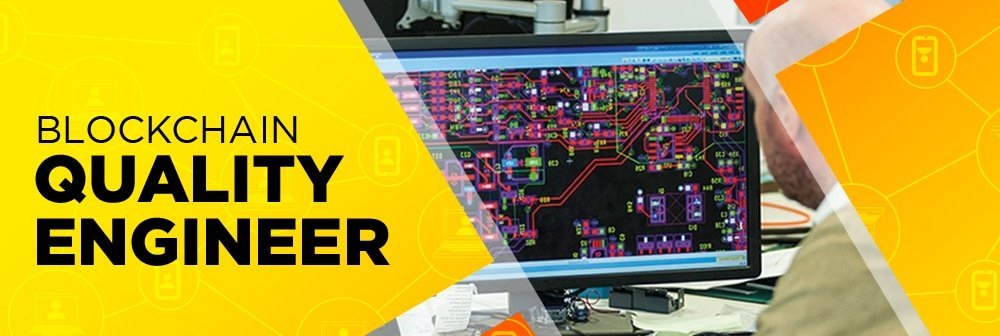
Blockchain quality engineers play a critical role in ensuring that blockchain applications and systems meet the highest standards of functionality, reliability, and security. Their responsibility is to make sure that every blockchain product is free from bugs, glitches, or any potential issues that could compromise its performance. In a world where trust and accuracy are vital, the work of these professionals is indispensable in delivering flawless products to users.
What Does a Blockchain Quality Engineer Do?
A blockchain quality engineer’s primary focus is on testing and quality assurance. They work to ensure that blockchain applications, whether smart contracts or dApps, function as intended. Their responsibilities include:
- Developing Automation Frameworks: Blockchain quality engineers often build and maintain automated testing frameworks that ensure software behaves correctly across various environments and use cases.
- Manual Testing: While automation is critical, manual testing also plays an important role in verifying the functionality, usability, and security of blockchain applications.
- Bug and Glitch Identification: Any inconsistencies or problems within a blockchain application are identified through rigorous testing. The engineer ensures that any issues are promptly reported to the relevant development teams for fixes.
- Creating Dashboards and Reports: After conducting tests, blockchain quality engineers generate detailed dashboards and reports that provide insights into the health and performance of blockchain systems. This allows for timely issue resolution.
Industries Seeking Blockchain Quality Engineers
Blockchain quality engineers are crucial across industries that rely heavily on blockchain technology to ensure the integrity of their systems. These include:
- Financial Institutions: Ensuring the security and efficiency of blockchain-based transactions.
- Cryptocurrency Platforms: Verifying the accuracy and stability of cryptocurrency transactions and platforms.
- Supply Chain Management: Maintaining transparency and reliability in supply chain blockchain applications.
- Government Agencies: Ensuring the security of blockchain-based systems for voting, record-keeping, and identity verification.
Key Skills for Blockchain Quality Engineers
To succeed in this role, a blockchain quality engineer must possess a blend of technical, problem-solving, and communication skills. The most important skills include:
- In-depth Knowledge of Blockchain Platforms: A solid understanding of how blockchain operates, including the ability to work with various blockchain platforms such as Ethereum, Hyperledger, and others.
- Testing Expertise: Proficiency in designing and executing both manual and automated tests to identify potential vulnerabilities and bugs.
- Problem-Solving Skills: The ability to think critically and quickly troubleshoot issues as they arise.
- Communication Skills: Strong communication is essential to report findings to relevant departments and ensure that any issues are addressed efficiently.
- Attention to Detail: Blockchain systems are complex, and a small error can lead to significant consequences. Quality engineers must have a keen eye for detail to spot even the most minor issues.
Why Blockchain Quality Engineers Are Highly Valued
The growing reliance on blockchain technology across industries has made the role of blockchain quality engineers highly valuable. By ensuring that blockchain applications function properly and securely, these professionals contribute directly to the reputation and success of blockchain-based solutions.
Salary Expectations
Blockchain quality engineers are well-compensated for their specialized skills. According to Glassdoor.com, these professionals typically earn between $108,000 and $117,000 annually. In regions with a higher cost of living or at top-tier companies, the salary can even surpass this range, reflecting the high demand for quality assurance in the blockchain space.
How to Become a Blockchain Quality Engineer
To pursue a career as a blockchain quality engineer, follow these steps:
- Master Blockchain Basics: Understanding blockchain technology, cryptography, and distributed ledgers is crucial.
- Gain Expertise in Testing: Learn both manual and automated testing techniques and frameworks to thoroughly test blockchain applications.
- Develop Problem-Solving Abilities: Enhance your critical thinking and troubleshooting skills to address issues quickly and efficiently.
- Stay Updated on Blockchain Platforms: Continuously update your knowledge of the latest blockchain platforms and testing tools.
- Pursue Relevant Certifications: Obtain certifications in quality assurance and blockchain development to validate your skills and stand out in the job market.
A blockchain quality engineer plays an essential role in the development of trustworthy blockchain applications. With the right skills and expertise, you can ensure that the blockchain solutions of tomorrow are robust, secure, and glitch-free. The job is not only highly rewarding but also crucial to the ongoing evolution of blockchain technology.
7. Blockchain Consultant: Guiding Businesses Through the Blockchain Revolution
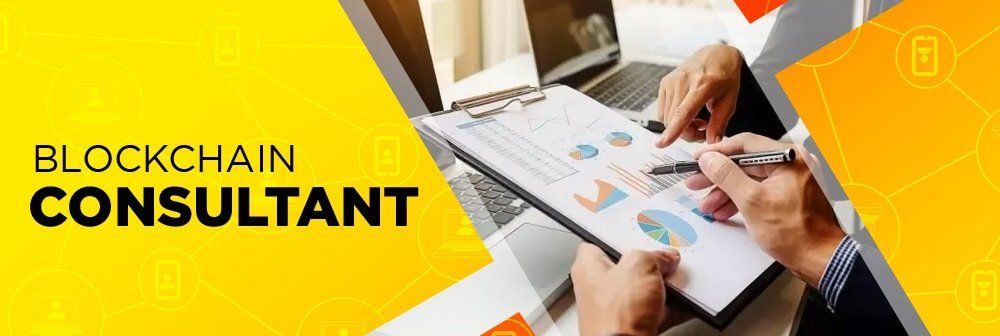
The role of a blockchain consultant has become one of the highest-paying positions in the blockchain industry today. These professionals offer critical expertise to organizations looking to adopt blockchain technology, providing strategic guidance, developing solutions, and helping businesses navigate the complexities of this innovative field. Blockchain consultants are integral to helping companies optimize blockchain’s potential while managing risks effectively.
What Does a Blockchain Consultant Do?
Blockchain consultants advise organizations on how to leverage blockchain technology to improve business operations, reduce costs, and enhance security. Their role involves:
- Strategy Development: They help businesses craft comprehensive blockchain strategies that align with their goals. This includes identifying opportunities for blockchain integration and determining the most effective approach for implementation.
- Solution Design: Blockchain consultants work with development teams to design blockchain solutions tailored to meet the specific needs of their clients. This can include everything from creating decentralized applications (dApps) to developing smart contracts or entire blockchain networks.
- Risk Management and Assessment: Blockchain consultants must evaluate the potential risks of blockchain adoption, such as security vulnerabilities, regulatory challenges, and the impact on existing systems. They then create strategies to mitigate those risks and ensure smooth transitions to blockchain-based systems.
- Training and Support: A key aspect of the job is educating internal teams and stakeholders on blockchain’s potential, ensuring that everyone involved understands the technology’s functionality and business benefits.
Industries Seeking Blockchain Consultants
Blockchain consultants are in demand across many sectors, including:
- Finance and Banking: Helping financial institutions implement secure, transparent blockchain solutions for transactions, payments, and record-keeping.
- Healthcare: Advising on blockchain for secure patient data management and improving transparency in healthcare supply chains.
- Supply Chain and Logistics: Providing blockchain solutions for tracking goods and ensuring the integrity of supply chains.
- Government and Public Sector: Assisting with the integration of blockchain in public records, voting systems, and identity verification.
Essential Skills for a Blockchain Consultant
To be an effective blockchain consultant, a combination of technical knowledge, business acumen, and strong communication skills is crucial. Key skills include:
- In-depth Blockchain Knowledge: A deep understanding of blockchain technology, its architecture, use cases, and the potential it holds for businesses.
- Consulting Experience: Strong background in advising businesses and translating complex technical concepts into understandable strategies for non-technical stakeholders.
- Risk Management: Expertise in assessing and mitigating potential risks associated with blockchain implementation, including legal, financial, and operational risks.
- Regulatory Knowledge: Familiarity with global blockchain regulations and legal considerations to ensure compliance and secure implementation.
- Problem-Solving and Innovation: Ability to think creatively and develop innovative solutions that leverage blockchain to solve business problems.
- Communication and Leadership Skills: Ability to communicate complex blockchain concepts clearly to business leaders and technical teams, as well as leading workshops and training sessions.
Why Blockchain Consultants Are Highly Valued
Blockchain consultants are highly valued for their ability to provide tailored solutions that maximize the benefits of blockchain for businesses. Their role goes beyond just offering advice—they help organizations navigate the complexities of blockchain adoption, making them an essential asset for any company looking to integrate this technology.
Salary Expectations
The average salary for a blockchain consultant is £35,918 per year, according to Glassdoor.com. However, experienced consultants working with high-profile clients or in specialized industries can command significantly higher salaries, particularly in markets with high demand for blockchain expertise.
How to Become a Blockchain Consultant
If you want to pursue a career as a blockchain consultant, here’s a roadmap to get started:
- Gain Strong Blockchain Knowledge: Build a solid understanding of blockchain technology, including its components, use cases, and business implications.
- Acquire Consulting Experience: Develop a background in consulting, project management, or business analysis to understand how to advise organizations on adopting new technologies.
- Stay Up-to-Date: Blockchain is an evolving field, so stay current with the latest developments, tools, and trends in the industry.
- Build a Network: Connect with blockchain professionals, attend conferences, and participate in blockchain forums to stay informed and develop valuable industry connections.
As a blockchain consultant, you’ll be in a high-demand, high-paying field where you can make a significant impact on businesses and industries adopting this game-changing technology. With the right knowledge and experience, you can guide organizations through the complexities of blockchain and help them achieve lasting success.
8. Blockchain Legal Consultant: Navigating the Legal Landscape of Digital Innovation
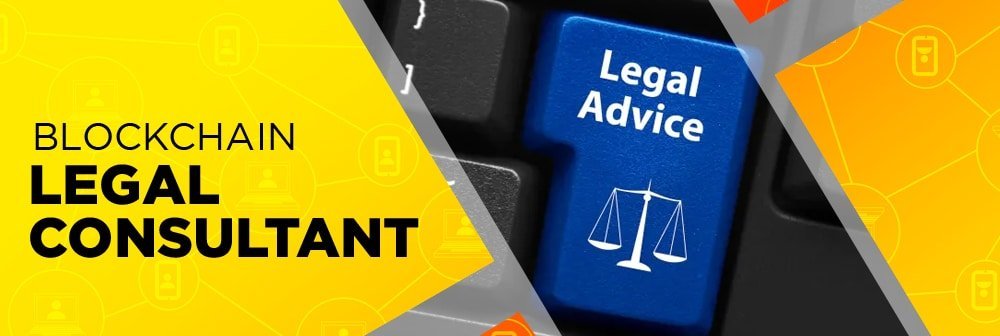
As blockchain technology continues to gain traction across industries, the need for legal professionals who can navigate the complexities of this emerging field has never been greater. Blockchain legal consultants play a crucial role in helping businesses understand the legal implications of blockchain and cryptocurrency technologies, ensuring compliance with regulations, and mitigating potential legal risks.
What Does a Blockchain Legal Consultant Do?
Blockchain legal consultants work closely with organizations, helping them structure their offerings in a way that complies with the legal framework surrounding cryptocurrencies and decentralized technologies. They may also assist in drafting, reviewing, and negotiating smart contracts, ensuring that these digital agreements are legally binding and enforceable.
Industries Seeking Blockchain Legal Consultants
The growing adoption of blockchain technology has led to an increased demand for legal consultants in several industries, including:
- Cryptocurrency and Finance: Helping financial institutions navigate the complexities of cryptocurrency regulations and transactions.
- Tech and Blockchain Startups: Assisting emerging blockchain-based companies in structuring their offerings and ensuring legal compliance.
- Government: Advising on the development and enforcement of laws related to blockchain and digital currencies.
- Real Estate: Providing legal support for the use of blockchain in property transactions and land registry.
- Intellectual Property: Advising on copyright, patent, and trademark issues related to blockchain innovations.
Essential Skills for a Blockchain Legal Consultant
To be successful as a blockchain legal consultant, a professional must possess a unique blend of legal expertise and technical knowledge. Key skills include:
- Blockchain and Cryptocurrency Knowledge: An understanding of how blockchain technology works and how it intersects with legal systems, including issues related to cryptocurrency regulation and digital asset management.
- Fintech Regulations: Familiarity with the financial technologies (fintech) regulations that govern blockchain and cryptocurrency practices in different countries.
- Contract Law and Smart Contracts: Expertise in drafting, reviewing, and enforcing traditional contracts, as well as understanding the legal aspects of smart contracts in blockchain environments.
- Legal Risk Assessment: The ability to assess and manage the legal risks associated with blockchain-based projects, ensuring that companies remain compliant with local and international laws.
- Communication Skills: The ability to explain complex legal concepts in a clear and accessible manner to non-legal stakeholders, ensuring that the business fully understands its legal obligations.
Why Blockchain Legal Consultants Are In Demand
With the rise of blockchain technology, companies must navigate a complex and often shifting legal landscape. Blockchain legal consultants are essential for businesses looking to launch blockchain-based projects or incorporate cryptocurrency into their operations. These professionals ensure that companies comply with the evolving regulatory environment, protecting them from legal risks and potential financial penalties.
Salary Expectations
Blockchain legal consultants can expect competitive salaries due to the specialized nature of their work. The average salary for a blockchain legal consultant typically ranges between $100,000 and $190,000 per year, depending on experience, location, and the size of the organization they work for. Consultants working for large financial institutions or tech companies may earn even higher salaries, especially in regions where blockchain adoption is more widespread.
How to Become a Blockchain Legal Consultant
If you’re interested in becoming a blockchain legal consultant, here are the key steps to get started:
- Legal Education: Obtain a law degree with a focus on technology, finance, or intellectual property law. Additional qualifications in blockchain or fintech law can be beneficial.
- Gain Blockchain Knowledge: Stay updated on the latest trends and developments in blockchain technology, cryptocurrency, and smart contracts.
- Build Legal Experience: Work in a legal role that involves technology or finance, gaining experience with contract law and digital transactions.
- Stay Informed on Regulations: Blockchain and cryptocurrency laws are rapidly evolving, so it’s crucial to stay informed about changes in fintech regulations, both nationally and internationally.
- Pursue Blockchain Certifications: Consider certifications in blockchain technology and fintech law to boost your credibility and expertise in the field.
Blockchain legal consultants are playing a vital role in the success of blockchain ventures and cryptocurrency adoption. By providing essential legal guidance, they help companies navigate a complex and evolving landscape, ensuring that their blockchain-based projects comply with the law and thrive in a competitive marketplace.
9. Blockchain Engineer: Building the Infrastructure of Tomorrow
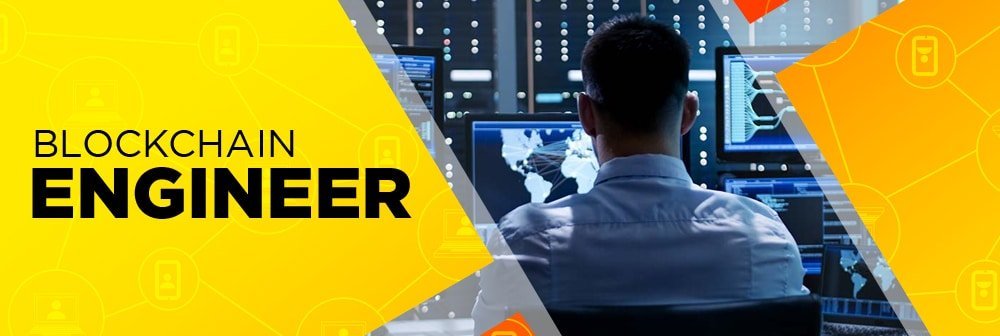
Blockchain engineers play a crucial role in the development and implementation of blockchain technologies within organizations. Unlike blockchain developers, who often focus on application development, blockchain engineers are primarily responsible for building and maintaining the underlying infrastructure of blockchain systems. Their work ensures that blockchain networks are secure, efficient, and scalable, meeting the technological needs of their organizations.
What Does a Blockchain Engineer Do?
A blockchain engineer’s responsibilities extend beyond writing code. They are tasked with designing and implementing blockchain protocols, developing smart contracts, and working on the overall architecture of a blockchain system. They also handle the optimization of existing blockchain systems to ensure they are running smoothly and securely.
The role typically involves:
- Designing Blockchain Solutions: Creating blockchain systems that align with a company’s business goals.
- Maintaining Blockchain Networks: Ensuring that blockchain networks are operational, secure, and able to handle large amounts of data.
- Developing Smart Contracts: Writing and deploying self-executing contracts that automate business processes.
- Optimizing Performance: Identifying and resolving issues related to scalability, latency, and other performance bottlenecks.
- Working on Security: Implementing measures to safeguard the blockchain network from potential threats and vulnerabilities.
Industries Hiring Blockchain Engineers
Blockchain engineers are essential across various sectors, particularly those that rely on secure, decentralized data systems. These industries include:
- Technology: Innovating new blockchain technologies and solutions.
- Finance and Banking: Creating secure platforms for digital transactions, cryptocurrencies, and financial services.
- Supply Chain: Building blockchain systems to track and verify the movement of goods.
- Healthcare: Designing systems to manage patient data securely and transparently.
- Government: Developing secure systems for record-keeping, voting, and public services.
Essential Skills for a Blockchain Engineer
To excel as a blockchain engineer, professionals need a strong foundation in both the technical and economic aspects of blockchain technology. Key skills include:
- Blockchain Architecture: Understanding the design and structure of blockchain systems, including distributed ledgers and consensus protocols.
- Programming Languages: Proficiency in languages such as Solidity, C++, JavaScript, and Python, which are commonly used in blockchain engineering.
- Cryptography: Expertise in encryption techniques that are essential for securing data on the blockchain.
- Smart Contracts: Familiarity with the development and deployment of smart contracts, especially on platforms like Ethereum.
- Blockchain Economics: A deep understanding of concepts such as incentivization, supply and demand, and the economic dynamics of blockchain systems.
- Problem-Solving and Innovation: The ability to think critically and come up with innovative solutions to complex blockchain challenges.
Why Blockchain Engineers Are Highly Valued
Blockchain engineers are in high demand due to their specialized skills and the growing adoption of blockchain technology across industries. They are seen as the backbone of any blockchain project, ensuring that the technical infrastructure is robust, secure, and scalable. The rapid growth of blockchain technology means that companies are constantly seeking skilled engineers who can keep up with new advancements and integrate them into their systems.
Salary Expectations
According to a report by Indeed.com, the average salary for a blockchain engineer is $70,859 per year. However, salaries can vary depending on factors such as experience, location, and industry, with more experienced professionals earning significantly higher pay. In some cases, blockchain engineers working for top companies or in specialized roles can earn six-figure salaries.
How to Become a Blockchain Engineer
If you’re interested in becoming a blockchain engineer, here are a few steps to guide you:
- Learn the Fundamentals: Study blockchain technology, including its architecture, consensus mechanisms, and cryptography.
- Master Programming Languages: Gain proficiency in blockchain-specific languages like Solidity and general-purpose languages like C++ and Python.
- Understand Blockchain Economics: Learn how blockchain’s economic model works, including concepts like incentivization and tokenomics.
- Build Projects: Work on real-world blockchain projects to gain hands-on experience. Contribute to open-source projects and create prototypes to showcase your skills.
- Earn Certifications: Obtain relevant blockchain certifications to validate your expertise and increase your marketability.
Blockchain engineering is a dynamic and rapidly growing field that offers professionals the chance to shape the future of technology. With the right skills and experience, you can play an integral role in developing the infrastructure that will power decentralized applications and systems for years to come.
10. Blockchain Analyst: Shaping the Strategy Behind Blockchain Technology
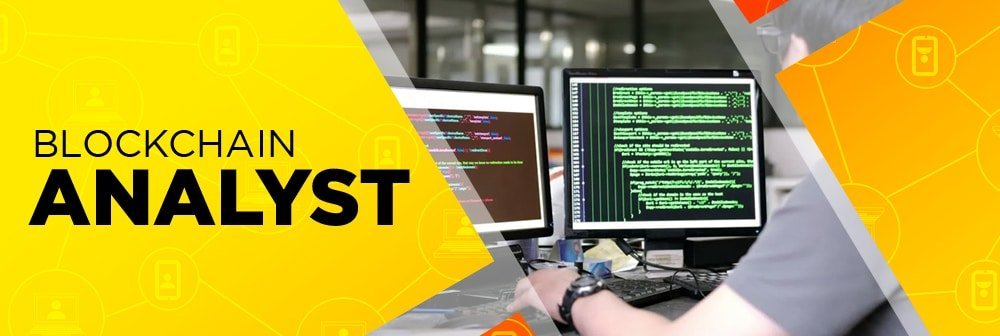
Blockchain analysts play a crucial role in ensuring that blockchain applications run efficiently, securely, and in line with business objectives. Their role is to analyze and assess blockchain systems from both a risk and business perspective, offering insights and strategies that help organizations navigate the complexities of blockchain technology.
What Does a Blockchain Analyst Do?
Blockchain analysts are responsible for evaluating and improving blockchain applications, with two main types of analysts specializing in different areas:
- Risk Analysts
Risk analysts focus on identifying, assessing, and mitigating potential risks related to blockchain applications. They are experts in spotting vulnerabilities within the blockchain infrastructure, such as security risks, compliance issues, or system inefficiencies. Once risks are identified, they work on formulating strategies to counteract or neutralize these threats, ensuring that blockchain systems are secure, reliable, and meet regulatory standards. - Business Analysts
Business analysts, on the other hand, focus on the strategic and operational aspects of blockchain applications. They are responsible for developing and refining business strategies that leverage blockchain technology to improve business processes. This could involve identifying new opportunities for blockchain integration, optimizing existing systems, and suggesting areas where the technology can be better utilized. Business analysts play a key role in aligning blockchain initiatives with the organization’s goals and objectives.
Industries Hiring Blockchain Analysts
Blockchain analysts are in high demand across various sectors as blockchain adoption grows:
- Financial Services: Analyzing risks related to cryptocurrencies, digital banking, and financial transactions.
- Tech Firms: Assessing blockchain integration into existing software systems and enhancing efficiency.
- Healthcare: Evaluating the use of blockchain for securing patient data, improving medical records, and reducing fraud.
- Supply Chain Management: Identifying areas where blockchain can increase transparency and efficiency in logistics and inventory.
- Government and Legal: Evaluating compliance and regulatory risks, especially in relation to blockchain governance.
Essential Skills for a Blockchain Analyst
To be effective in this role, a blockchain analyst needs a unique blend of technical and business skills. Key competencies include:
- Blockchain Knowledge: A deep understanding of blockchain technology, its functions, and its potential risks.
- Risk Management: Expertise in identifying, analyzing, and managing risks in blockchain systems, ensuring both security and compliance.
- Business Acumen: The ability to develop strategies that align blockchain technology with business objectives.
- Data Analysis: Strong skills in data interpretation to assess blockchain performance and identify areas for improvement.
- Communication Skills: The ability to communicate technical findings to non-technical stakeholders and influence business decisions.
- Regulatory Knowledge: Understanding the legal landscape surrounding blockchain technology, including privacy regulations and compliance standards.
Why Blockchain Analysts Are Highly Valued
The growing complexity and adoption of blockchain technology across industries have created a pressing need for experts who can evaluate both the risks and opportunities it presents. Blockchain analysts bridge the gap between technical teams and business leaders, ensuring that blockchain applications are secure, efficient, and aligned with business goals.
Salary Expectations
According to a survey conducted by Indeed.com, the average salary for a Risk Analyst in the blockchain field is $93,291 per year. However, this can vary based on experience, location, and the specific industry. Business analysts, who often have a broader scope of responsibilities, may earn slightly higher salaries depending on their level of expertise and the size of the organization.
How to Become a Blockchain Analyst
If you are interested in becoming a blockchain analyst, here are some steps to consider:
- Gain a Deep Understanding of Blockchain: Learn the fundamentals of blockchain, including how it works, its various use cases, and the potential risks.
- Develop Technical Skills: Familiarize yourself with relevant tools and technologies, such as smart contracts, data analysis software, and blockchain platforms.
- Learn Risk Management and Business Strategy: Understand how to evaluate and manage risks and how to create strategies that maximize the benefits of blockchain.
- Pursue Certifications: Earning certifications in blockchain technology, risk management, or business analysis can make you stand out to employers.
- Stay Current: The blockchain space is evolving rapidly, so staying updated on trends, emerging threats, and new blockchain solutions is essential.
With blockchain technology continuing to disrupt industries, the demand for blockchain analysts is set to grow. By developing the right mix of technical expertise and business insight, you can carve out a successful and rewarding career in this exciting field.
FAQs About Blockchain Jobs
1. What are blockchain jobs, and why are they in demand?
Blockchain jobs refer to positions in the tech industry that focus on developing, managing, or applying blockchain technology. These jobs range from blockchain developers and engineers to project managers and legal consultants. The demand for blockchain jobs has surged because blockchain technology is being adopted across various sectors, including finance, healthcare, and logistics, to enhance security, transparency, and efficiency. With industries recognizing the potential of blockchain, there’s a shortage of skilled professionals, which drives high-paying opportunities for those with expertise.
2. What skills are required for blockchain jobs?
Skills for blockchain jobs vary depending on the role but generally include proficiency in programming languages (such as C++, Python, and JavaScript), understanding of blockchain architecture, cryptography, and smart contracts. Knowledge of blockchain platforms like Ethereum, Hyperledger, and Bitcoin is also essential. For roles like blockchain project managers or consultants, strong communication, project management, and business strategy skills are key. Developing a deep understanding of distributed ledgers and decentralization principles will also give you an edge in blockchain jobs.
3. How much can I expect to earn in blockchain jobs?
Salaries for blockchain jobs can vary significantly depending on the role, experience, and location. On average, blockchain developers earn around $92,000 annually, while blockchain architects can make upwards of $114,000 per year. Specialized roles, like blockchain consultants and legal consultants, can command salaries between $100,000 and $190,000. In general, blockchain jobs offer competitive pay due to the high demand for skilled professionals in this emerging field.
4. What are the best-paying blockchain jobs in 2026?
Some of the highest-paying blockchain jobs in 2026 include roles like blockchain developers, blockchain architects, blockchain consultants, and blockchain engineers. These positions often require a strong technical background, with blockchain developers making an average of $92,000 per year and blockchain architects earning about $114,000 annually. Blockchain project managers and UX designers also command impressive salaries, with the latter earning around $107,500 annually.
5. Can I start a blockchain career without prior experience?
Yes, you can start a career in blockchain even if you don’t have prior experience. Many entry-level blockchain jobs are available, such as blockchain analysts or blockchain administrators, where you can build foundational knowledge. To get started, consider taking online courses or earning certifications in blockchain technology. With dedication and the right training, you can gradually move into more advanced blockchain jobs, such as blockchain developers or architects.
6. How do I find blockchain job opportunities?
Finding blockchain job opportunities can be done through various channels, such as job boards, specialized tech recruitment websites, and professional networking platforms like LinkedIn. Many blockchain-focused job boards and cryptocurrency job sites regularly post blockchain-related roles. It’s also helpful to attend blockchain conferences and meetups to connect with employers directly. If you’re actively learning blockchain technology, consider joining online communities or forums to stay updated on new job openings.
7. What is the future of blockchain jobs?
The future of blockchain jobs looks incredibly promising. As blockchain technology continues to mature, more industries are incorporating it into their operations, creating long-term demand for blockchain professionals. Additionally, the emergence of decentralized finance (DeFi), non-fungible tokens (NFTs), and blockchain-based supply chains is likely to fuel job growth in these areas. Blockchain jobs will evolve with new advancements in the field, and professionals who continue to develop their skills will have significant career opportunities.
8. What are the entry-level blockchain jobs to consider?
If you’re new to blockchain technology, consider starting with entry-level positions such as blockchain analysts, blockchain administrators, or junior blockchain developers. These roles allow you to learn the basics of blockchain while building experience. Many organizations are open to hiring entry-level blockchain professionals who show a willingness to learn and develop their skills. Starting with these foundational roles can lead to higher-paying positions as you gain more experience in blockchain jobs.
9. Do blockchain jobs require a degree in computer science?
While having a degree in computer science or a related field can be advantageous for blockchain jobs, it is not a strict requirement. Many blockchain professionals enter the field through self-learning, online courses, and certifications. The most important factor is having the skills and knowledge required for the job, such as proficiency in blockchain programming, understanding of cryptography, and experience with blockchain platforms. Practical experience and a strong portfolio can often outweigh formal educational qualifications in blockchain jobs.
10. How do blockchain consultants help businesses?
Blockchain consultants are experts who advise businesses on how to integrate blockchain technology into their operations. They help organizations design blockchain strategies, assess risks, and implement solutions tailored to specific business needs. Blockchain consultants can also guide companies in navigating legal and regulatory challenges related to blockchain adoption. As blockchain technology becomes more widespread, the demand for blockchain consultants in various industries is expected to grow, making it one of the highest-paying blockchain jobs.
Final Remark
With all the information on the highest-paying blockchain jobs, it’s up to you to settle on what meets your interests. However, you ought to remember that there are various positions still in the blockchain sphere to which one can send their application. The basis is your educational background, expertise as well as the experience you have in a specific industry. It’s advisable to pursue a job in an industry that has the potential for growth as it’s more advantageous. Still, it’s best to apply for a position that you know you’re highly qualified for.
As the world gravitates towards blockchain technology, there is an immense opportunity for you to build an outstanding career in a blockchain-related job. The truth is blockchain is not about to crumble or disappear anywhere in the future. And because of this, the need for jobs will grow and with such is the growth in demand for expertise in the field. With the favorable pay attached to a high demand for the right skillset in block technology, it’s time to position yourself right. You need to pursue and earn a blockchain expert credential and prepare yourself to reap great benefits from your effort.
If you’re completely new to blockchain technology, you need not worry. You have a chance to begin from the basics and go all the way to becoming a blockchain expert.
May your career journey be exciting!
So, what are you waiting for?
Get started with the best Blockchain Certification Courses here.
